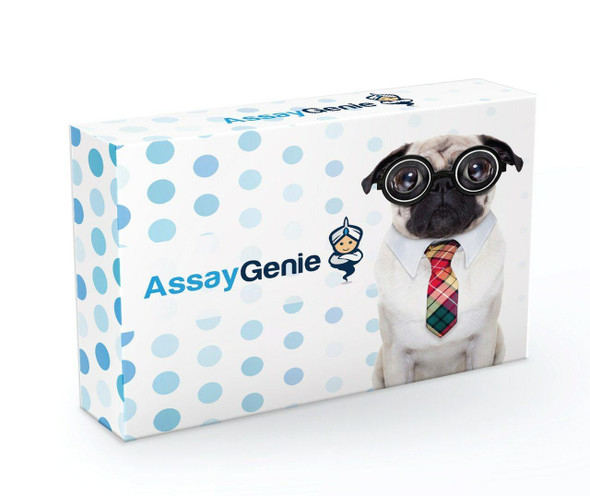CTLA 4 Monoclonal Antibody [RYNmCTLA-4] (CPAB0349)
- SKU:
- CPAB0349
- Product Type:
- Antibody
- Antibody Type:
- Monoclonal Antibody
- Reactivity:
- Mouse
- Host Species:
- Hamster
- Isotype:
- IgG
- Clone:
- RYNmCTLA-4
Description
CTLA 4 Monoclonal Antibody [RYNmCTLA-4] (CPAB0349)
The CTLA-4 Polyclonal Antibody (CPAB0349) is a valuable tool for research involving CTLA-4, a key immune checkpoint molecule that plays a critical role in regulating T cell activation and immune responses. This antibody, generated in rabbits, demonstrates high reactivity with human samples and has been validated for use in Western blot applications. By specifically binding to the CTLA-4 protein, this antibody enables accurate detection and analysis in a variety of cell types, making it an ideal choice for studies in immunology and cancer research.
CTLA-4, also known as cytotoxic T-lymphocyte associated protein 4, is a key negative regulator of T cell activation and is involved in maintaining immune tolerance and preventing autoimmune responses. Its significance in immune checkpoint regulation has made it a promising target for the development of cancer immunotherapies. Research into the role of CTLA-4 is essential for understanding its potential as a therapeutic target in cancer and autoimmune diseases, as well as for developing novel treatment strategies that modulate immune responses.
| Product Name: | CTLA 4 Antibody |
| Product Sku: | CPAB0349 |
| Size: | 500 |
| Host Species: | Hamster |
| Immunogen: | mixture of mouse activated T cells. |
| Clone: | RYNmCTLA-4. |
| Reactivity: | Mouse |
| Applications: |
| Purification Method: | Ion exchange column. |
| Isotype: | IgG |
| Background: | CTLA-4 is a member of the immunoglobulin superfamily and encodes a protein which transmits an inhibitory signal to T cells. The protein contains a V domain, a transmembrane domain, and a cytoplasmic tail. Alternate transcriptional splice variants, encoding different isoforms, have been characterized. The membrane-bound isoform functions as a homodimer interconnected by a disulfide bond, while the soluble isoform functions as a monomer. Mutations in this gene have been associated with insulin-dependent diabetes mellitus, Graves disease, Hashimoto thyroiditis, celiac disease, systemic lupus erythematosus, thyroid-associated orbitopathy, and other autoimmune diseases. |
| Synonyms: | GSE, CD152, IDDM12, CELIAC3, CTLA-4. |
| Storage Buffer: | Lyophilized: store at 4°C. After reconstitution, if not intended for use within a month, aliquot and store at -20°C. |







![Anti-Mouse CTLA-4 [9H10] In Vivo Antibody - Low Endotoxin Anti-Mouse CTLA-4 [9H10] In Vivo Antibody - Low Endotoxin](https://cdn11.bigcommerce.com/s-h68l9z2lnx/images/stencil/590x590/products/214382/569436/anti-mouse-ctla-4-9h10-in-vivo-antibody-low-endotoxin__38829.1673496885.jpg?c=2)

![Anti-Mouse CTLA-4 [9D9] In Vivo Antibody - Low Endotoxin Anti-Mouse CTLA-4 [9D9] In Vivo Antibody - Low Endotoxin](https://cdn11.bigcommerce.com/s-h68l9z2lnx/images/stencil/590x590/products/214407/569387/anti-mouse-ctla-4-9d9-in-vivo-antibody-low-endotoxin__60403.1673496754.jpg?c=2)

